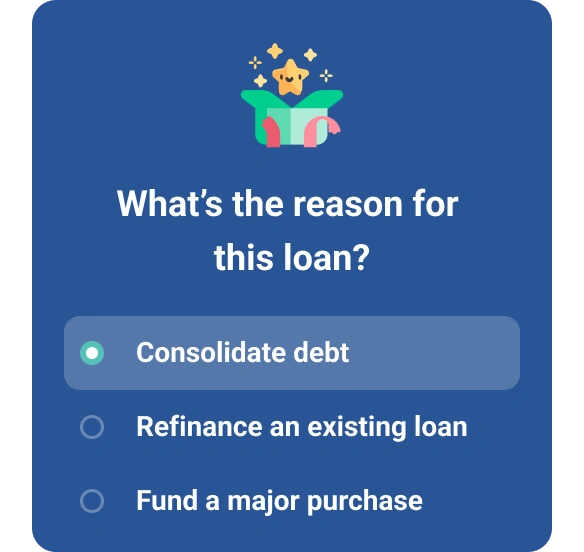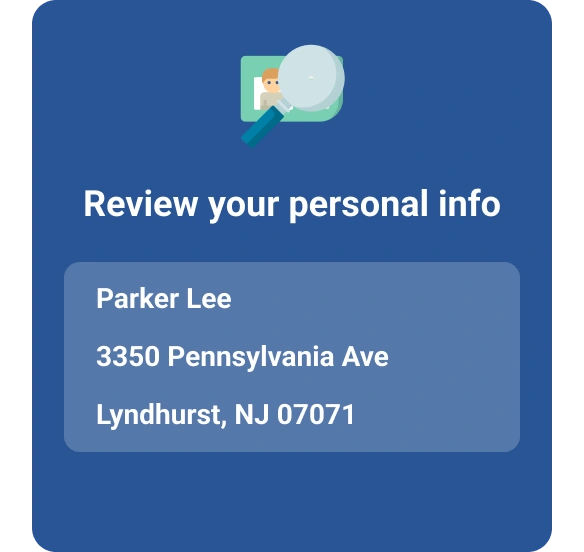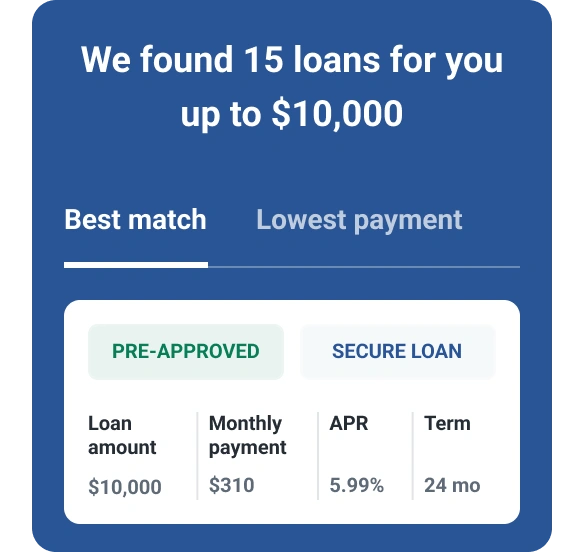How to Get a Personal Loan With No Credit Check
Quick Answer
You can get a no-credit-check loan by applying through lenders that use alternative information, such as your income and banking history, to approve you. Alternatively, consider other ways to borrow, such as using paycheck advance apps. If possible, take time to build credit before you apply for a personal loan.

It's possible to get a personal loan without a credit check, but no-credit-check personal loans can be limited. Many come with extremely high interest rates.
If you don't need the loan urgently, taking steps to improve your credit before you apply for a loan can help you save on interest. When you need cash now, don't discount alternative borrowing options, such as paycheck advance apps or loans from family and friends. Here's what to know about getting a personal loan with no credit check.
Can I Get a Personal Loan With No Credit Check?
Yes, you may be able to get a personal loan with no credit check. But no-credit-check loans often come with high interest and fees. For example, payday loans have short repayment terms and rates averaging 400% annual percentage rate (APR) or more, making them a risky option.
On the other end of the spectrum, you may be able to find online lenders that use alternative data, such as banking data and rental history, to approve you for a loan. That said, lenders that accept alternative data may still require at least fair credit. Personal loan terms vary by lender and loan, so carefully review the details of a new loan before you apply.
Learn more: Is it Ever Good to Get a Payday Loan?
How No-Credit-Check Loans Work
No-credit-check loans typically work by using your employment status and income to qualify you. They're often unsecured, meaning you don't have to put down collateral to qualify. Once you're approved, you'll be expected to repay your loan, plus interest and fees, over a set period of time.
Because conventional loans use your credit as a way to gauge your ability to repay a loan, they charge a rate of interest proportional to your risk to a lender. Without a credit check, no-credit loans typically offset risk by charging much higher interest.
Why It May Be Best To Avoid Some No-Credit-Check Loans
No-credit-check loans may seem like a good option when you're in a pinch and have a low credit score, but certain no-credit-check loans are often a bad idea. First, with rates sometimes reaching into the triple digits, loans that don't require a credit check could become a serious burden on your finances. Once you take on high-interest debt, digging your way out can be challenging.
Also, no-credit-check lenders—specifically payday loan lenders—may not report your new loan or your loan payments to the three credit bureaus (Experian, TransUnion and Equifax), so repayment may not help you build your credit history. Over time, you'll be missing out on the opportunity to establish creditworthiness and qualify for better borrowing options. Combined with high fees, this could keep you in a cycle of relying on risky borrowing options when you need money.
Alternatives to No-Credit-Check Loans
Because no-credit-check loans often make up for your lack of credit history by charging higher interest rates or fees, it may be in your favor to look elsewhere when you need financing. Fortunately, there are many alternative borrowing options to choose from. Here are some options to consider.
- Paycheck advance apps: Early payday apps are similar to payday loans in that they can provide you with emergency cash between paychecks and typically require no credit check. Unlike a payday loan, these apps review your finances to determine your eligibility to borrow and charge much lower fees, making them a cheaper option.
- Payday alternative loans (PALs): If you've been a member of a federal credit union for at least one month, you may be able to borrow a PAL. These are small, unsecured loans designed to provide members with a more affordable emergency borrowing option.
- Bad credit personal loans: This option could work for you if you want to take out a traditional personal loan but are concerned you won't get approved due to poor credit. Personal loans for poor credit may be small and come with high interest, so determine what you'll qualify for and what it'll cost to borrow before you apply.
- Friend or family loans: A loan from a friend or family member could also be an option. Be sure you understand the risks of borrowing from loved ones before you ask to borrow. If you choose to go this route, write up a formal loan contract both parties can agree to.
How to Apply for a Personal Loan
If you've determined that a traditional personal loan is your best fit, follow these steps to apply for a personal loan and improve your approval odds and terms.
1. Check Your Credit
Whatever type of loan you apply for, it's always wise to check your credit score first. That way, you'll have a firmer understanding of what exactly you may qualify for. Check your credit score for free through Experian to get a clear picture of your credit score range and how lenders view you as an applicant.
2. Evaluate How Much Money You Need
Before you hone in on a specific lender and get prequalified, get clear on exactly how much you need to borrow to meet your goal. If you need $2,000 for an emergency home or auto repair, then a $500 prequalified offer won't be much help.
3. Gather Necessary Information
Whether you apply for a loan with or without a credit check, you'll likely need to provide documentation to prove your identity and income. While you may not be asked for all of it, have on hand your government-issued photo ID or driver's license, proof of income such as pay stubs and tax returns, your employment and rent or mortgage history and recent bank statements.
4. Compare Loan Options
Before you formally apply, get prequalified to see what rates you're eligible for through various lenders. To make comparing offers simpler, check out loans matched to your credit profile. Compare possible loan options, and be sure to take into account the total cost of the personal loan, which includes fees and interest charges.
The APR you see alongside a loan is a good shorthand for checking the amount of monthly interest charges and upfront fees, such as origination fees, which are automatically deducted from the loan amount.
Also check for other types of fees, including prepayment penalties, which can add to the cost of your loan.
5. Budget for Repayment
Before you hit "apply," review your budget to determine how much you can afford in monthly payments. Taking on a debt with payments that stretch your budget thin can make it difficult to pay on time, which can place you under more financial pressure. Prioritizing on-time payments will help you avoid penalties and damage to your credit, if your lender reports to the bureaus.
How to Establish Credit When You Have No Credit History
Establishing credit and improving your score over time can help you reach a number of goals—everything from qualifying for a good credit card to renting an apartment to lowering your insurance premiums. If you're totally new to credit, here are tips to start building credit now.
Become an Authorized User
Asking a close and trusted family member or friend if you could be added as an authorized user on their credit card can be an entry point into building up your payment history. You'll build a history of managing accounts, which can help you qualify for a credit card on your own down the line to keep building credit independently.
Open a Secured Credit Card
A secured credit card is a type of card that requires you to put down a deposit. That deposit amount often serves as your credit limit. Like with any type of credit card, your monthly payments are reported to the credit bureaus to help you build up a positive payment history. After you've built up some credit history, you can graduate to a traditional credit card.
Try Experian Go™
Experian Go™ is a free program that can help you create a credit report if you're currently credit invisible. Establishing a credit report is the first step in your journey to building good credit. From there, you'll receive personalized insights on how to keep building credit going forward.
Get Credit for Eligible Bill Payments
Whether you have no credit history or need to improve your credit, getting credit for eligible on-time bill payments can help you build credit faster. Sign up for Experian Boost®ø to add qualified bill payments, such as popular streaming services, utilities and rent, to your Experian credit report—and possibly see an immediate increase to your credit scores.
The Bottom Line
When you need a personal loan now, a no-credit-check loan could be an option. But there are other routes you can choose for emergency money, such as a payday advance app or a payday alternative loan.
When possible, it's in your favor to spend time building credit before you borrow. That can help you broaden your options and qualify for better rates and terms. Sign up for free credit monitoring through Experian to see personalized insights into your credit alongside ideas for actions you could take to improve, such as paying off a balance.
Need a personal loan?
Whether you're looking to eliminate debt or access cash fast, compare personal loan offers matched to your credit profile.
Start now for freeAbout the author
Evelyn Waugh is a personal finance writer covering credit, budgeting, saving and debt at Experian. She has reported on finance, real estate and consumer trends for a range of online and print publications.
Read more from Evelyn

